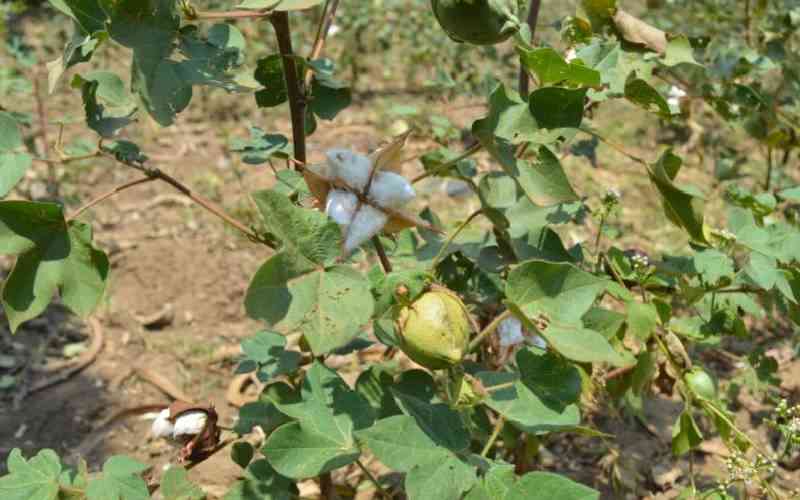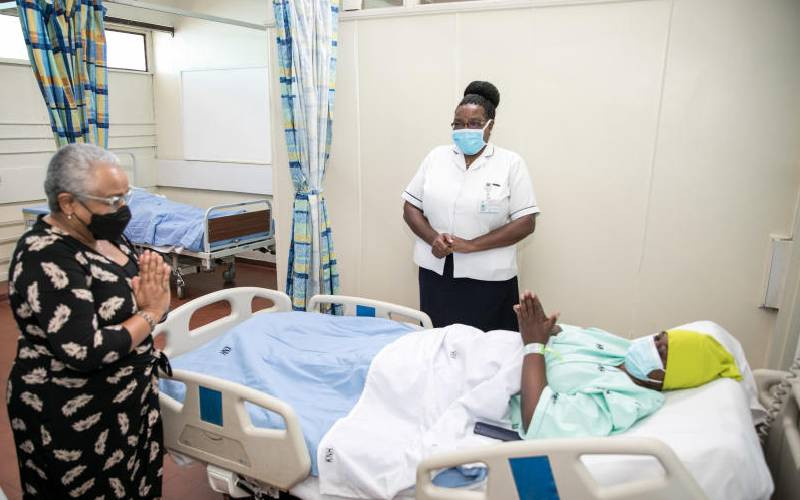 |
|
Pupils at Mwiyenga Primary School in Bumula Constituency, soaking their feet in a herbal solution during an anti-jigger campaign in the school recently. The anti-jigger campaign is spearheaded by Namuleyi Wasike |
She would pass for an ordinary person in the streets of Bungoma town at first glance, but Namuleyi Wasike has earned her place in history for her spirited solo fight against jigger infestation in the country.
Namuleyi, who is in her early 40s, has been assisting families in various constituencies in Bungoma County and neighbouring regions in creating awareness about containing jigger infestation, common among school-going children and adults .
AWARENESS CAMPAIGN
About a year ago, she got to know of a schoolboy who was infested with jiggers and she decided to help.
“I posted this case on Facebook and many of the 5,000 friends and 400 followers who responded offered to assist the child,” she says. “This marked the start of my campaign to remove jiggers from their feet.”
She says that with the little money she receives, she bought soap and medicine and visited the young boy at their home.
She posted this incident on Bungoma County Facebook page which has more followers and the response was overwhelming.
“After that, I earned the tag of an anti-jigger activist, and I have never looked back,” says Namuleyi, who is also the executive director of a local non-State body, Breakthrough Foundation for Social Change.
SHOE-STRING BUDGET
“I was not going to squander the opportunity so I decided to create a Facebook page and named it Anti-Jigger Campaign Bungoma County. That is where I post updates of my activities.”
Many of her Facebook friends respond with donations.
“Seventy per cent of my support comes from Facebook friends, but at times I have to dig deep into my pockets to keep the campaign going,” she says, adding that she is on a shoe-string budget much of the time.
“In order to cut costs, I work with volunteers when we visit homesteads and learning institutions to help those with jiggers. It has worked and we have so far treated pupils in almost 100 schools in this region.”
She also works closely with community health workers to identify homes and households that have people who are infected.
“Teachers have also been very supportive and often invite us to their schools to treat the learners. My Facebook friends also refer me to those who need help.”
Stay informed. Subscribe to our newsletter
Due to budgetary constraints, Namuleyi uses a herbal solution, Pediheal, that has been okayed by the Kenya Bureau of Standards.
All patients have to do is soak their feet in Pediheal for at least 20 minutes and the parasites fall off or pop out.
“It is a fast and painless procedure unlike when jiggers are removed using pins as is always done by the victims or their relatives. That treatment regimen makes children very uncomfortable,” she says.
While hers might seem a noble cause that should ideally be supported by all and sundry, some elected leaders were initially against her campaign as they thought she was out to portray them in bad light.
“I approached the politicians and explained to them what my aim was. I am happy that now, most of them are supportive.”
Even then, she still faces another challenge from another group: parents of the victims themselves and she has had to be forceful to get the work done.
LAW ENFORCEMENT
“On two occasions, I sought the help of law enforcement officers so that some parents could allow us to remove jiggers from the feet of their children,” she discloses.
She says some parents are embarrassed by their children’s condition, but after she “forcefully” treats them, they become grateful.
The mother of five admits that the going has been tough, but she gets satisfaction from helping the less fortunate, more so when they are children.
 The Standard Group Plc is a
multi-media organization with investments in media platforms spanning newspaper
print operations, television, radio broadcasting, digital and online services. The
Standard Group is recognized as a leading multi-media house in Kenya with a key
influence in matters of national and international interest.
The Standard Group Plc is a
multi-media organization with investments in media platforms spanning newspaper
print operations, television, radio broadcasting, digital and online services. The
Standard Group is recognized as a leading multi-media house in Kenya with a key
influence in matters of national and international interest.
 The Standard Group Plc is a
multi-media organization with investments in media platforms spanning newspaper
print operations, television, radio broadcasting, digital and online services. The
Standard Group is recognized as a leading multi-media house in Kenya with a key
influence in matters of national and international interest.
The Standard Group Plc is a
multi-media organization with investments in media platforms spanning newspaper
print operations, television, radio broadcasting, digital and online services. The
Standard Group is recognized as a leading multi-media house in Kenya with a key
influence in matters of national and international interest.








